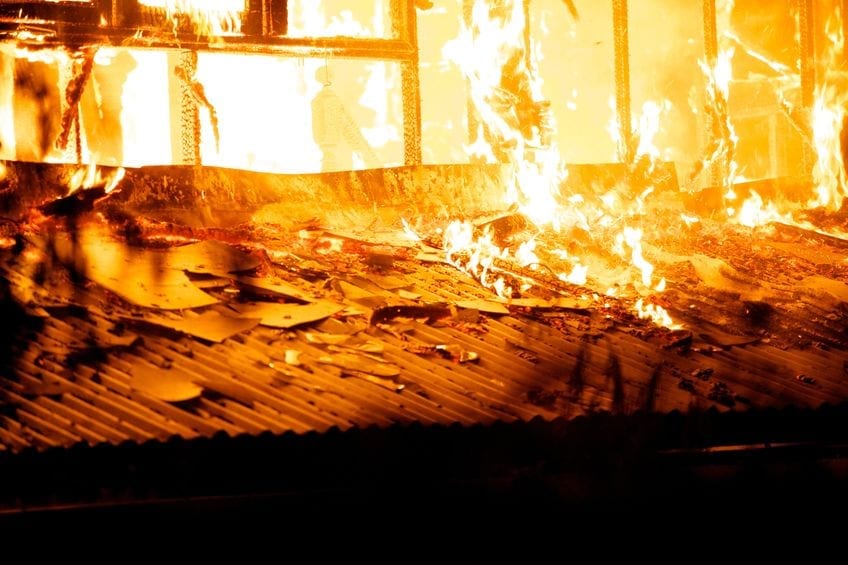What Is a Forcible Felony?
Any felony-level charge is quite serious, as felonies carry lengthy prison sentences and restrictions to your freedom even after your sentence has been served and your case is closed.
However, there is an even more serious class of felony, known in the state of Illinois as forcible felonies. Offenders of this type are considered an immediate threat to the public.
Therefore, in order to protect potential future victims, offenders convicted of forcible felonies face a considerable number of restrictions. For example, a forcible felony offender faces additional restrictions on employment, and may even be prohibited from living in certain locations that are close to schools or parks.
Although these laws are well-intentioned, they also keep former offenders from maintaining gainful employment, leaving them with no choice but to return to a life of crime. Studies have shown that well-paid employment dramatically reduces recidivism rates.
In this interest, Illinois has recently revised the laws that dictate the restrictions placed upon prior offenders, which may allow some former offenders to become productive members of society with gainful employment, therefore reducing the chance of re-offending.
Below we take a look at what, exactly, constitutes a forcible felony, and some of the restrictions faced by those convicted of this type of offense. Finally, we discuss recent changes in Illinois laws that lift some of the restrictions placed on forcible felons.
How Illinois Defines a “Forcible Felony”
Under Illinois law, a forcible felony is a felony offense that involves the use of, or threat of, physical force to another person. Even if no violence actually occurred in the commission of the offense, the offense may still be considered a forcible felony based on the threat of force. Importantly, this includes convictions for attempted forcible felonies.
Common examples of forcible felonies include:
- First-degree murder
- Second-degree murder
- Attempted murder
- Intentional homicide of an unborn child
- Voluntary manslaughter of an unborn child
- Drug-induced homicide
- Kidnapping
- Unlawful restraint
- Compelling organizational membership of persons
- Involuntary servitude
- Human trafficking
- Aggravated battery
- Home invasion
- Forcible detention
- Causing a catastrophe
- Armed robbery
- Aggravated robbery

- Arson
- Vehicular hijacking
- Terrorism
- Possession of a deadly substance
- Making a terrorist threat, or falsely making a terrorist threat
- Material support for terrorism
- Boarding or attempting to board an aircraft with a weapon
- Armed violence
- Sexual assault
- Criminal sexual assault of a child
- Treason
An Illinois Forcible Felony Conviction Impinges on Your Freedom
Remember, if you are convicted of a forcible felony, you are considered a danger to society. Therefore, you will be subjected to a number of restrictions intended to keep vulnerable people out of harm’s way.
For example, you will be prohibited from working in places where children are often present, such as schools and parks. You may also be prohibited from living within a certain distance of these locations. Until recently, you weren’t even able to obtain a health care worker license, either, which is required for most healthcare-related jobs.
(More on that in a bit.)
Additionally, persons convicted of any felony may apply for conditional firearms licenses after 10 years if there is no further criminal activity, if you were convicted of a forcible felony, it’s unlikely that you’ll ever be allowed to possess a firearm again.
All of this is to say that if you have a forcible felony conviction, your freedoms will be significantly reduced long after your sentence is complete. Perhaps the most detrimental consequences are the restrictions on employment, which often prevent former offenders from earning a living wage.
Recent Changes in Illinois Law
Recidivism rates are quite high in Illinois. Around 30,000 inmates are released from Illinois prisons each year. Among them, nearly half will return within three years based on new offenses committed after release.
The reasons behind recidivism are complex, but many former offenders commit crimes again because they are otherwise unable to earn a living to support their families.
Therefore, it’s common sense that giving former offenders more opportunities to earn a legitimate living could dramatically decrease recidivism rates.
Under new bipartisan legislation, some employment restrictions may be lifted from prior offenders, including, in some cases, forcible felons.
As mentioned above, until recently anyone convicted of a forcible felony was prohibited from applying for a health care license. Under the new legislation, those convicted of a forcible felony at least five years ago are eligible for a health care license so long as there has been no further criminal activity since the conviction. However, forcible felonies with required sex offender registration or committed against a patient still disqualify prior offenders from obtaining a license.

The bottom line is that lawmakers are increasingly moving towards providing more opportunity for former offenders so that they can become productive members of society.
This is good news not only for those who have a criminal record but also for the criminal justice system and society as a whole.
About the Author:
Andrew M. Weisberg is a former felony prosecutor who now serves as a defense attorney in the greater Chicago area. He has extensive experience in handling all types of criminal cases, from sex offenses and domestic violence to retail theft-related crimes, murder, and drug crimes.







 Blog Home
Blog Home 










